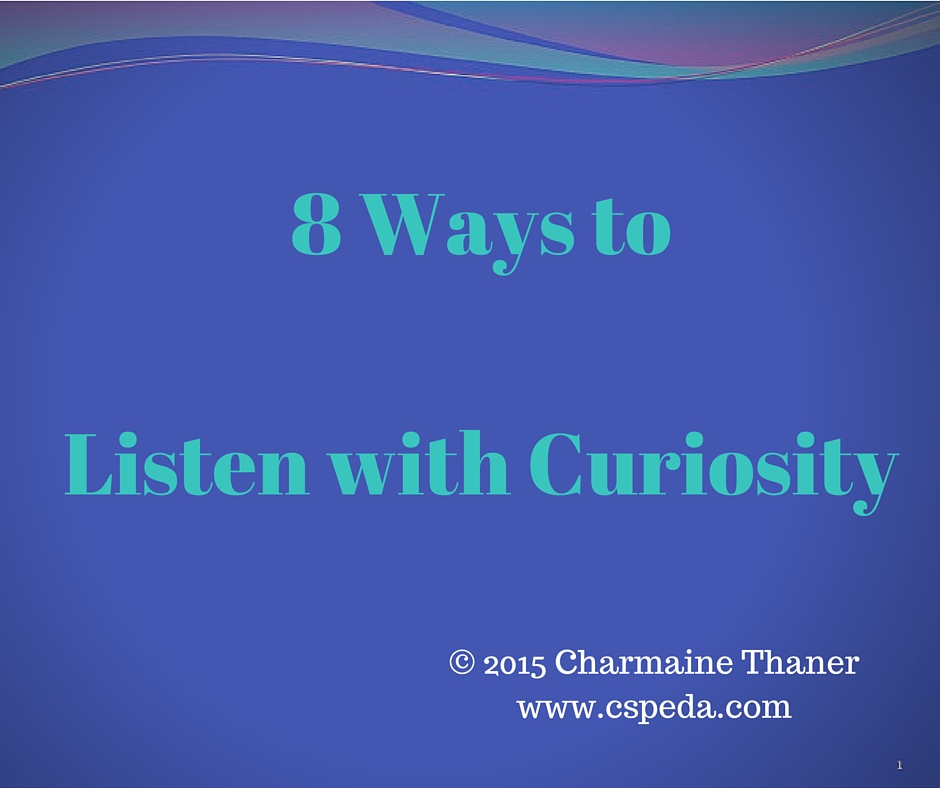8 Ways to Listen With Curiosity
Listen With Curiosity
Everyone sitting around the conference table felt the tension. The meeting was no longer a discussion, it had turned into everyone talking at the same time…sound familiar? Have you ever been in a meeting with teachers and you cannot wait for them to pause so you can jump in and let them know what you think? In your mind, you are rehearsing what you are going to say before the other person is even done talking. You have stopped listening to what they are saying and instead, you want to start saying what is on your mind. As Dr. Phil says, “How’s that working for ya?” Probably not that well.
When we feel a strong sense of urgency to speak up, our listening drops dramatically. You will not change someone’s mind by arguing with him or her. Instead, if you ask questions at school meetings, you can often learn how the school perceives your child’s needs and what they are proposing to do to meet those needs.
I love that phrase, “listen with curiosity.” It brings up such a clearer picture of what we need to be practicing. This is a personal and professional goal for me – to hear the other person’s words, see their body language, and go beneath all of that to see if I can be a good detective and understand why they are saying what their saying. That is when we can begin to really communicate on a level that is going to allow us to bring about collaborative change.
We know people in conflict must not only have the opportunity to speak, but to be heard. Once heard, everyone has a deeper understanding of the problem and potential ways it can be resolved.
Listening with curiosity helps give us insight into the other person’s motivation and beliefs. This is important because we need to recognize where they are coming from. Each IEP team member has a role to play and that role is influenced by his or her motivation and beliefs.
When we listen with attention and respect, it shows people what they are saying is important. You may disagree with what they’re saying, but when you show respect, it will go a long way in helping the conversations continue and be give and take.
What can parents do:
1. Challenge yourself to set aside your opinion for a time in order to start to see the situation from someone else’s perspective.
2. Notice both the emotion and what the speaker is saying.
3. While listening, do not think about who is right.
4. Keep focused on the conversation.
5. Bring someone else who can take notes for you, it makes it easier to
listen better.
6. Remember, your face and posture show if you are listening or not.
7. As much as staying in the conversation is important, allow for
silences.
8. Listen without interrupting and making judgments.
Once parents and teachers can get a chance to truly listen to each other and appreciate where each person is coming from, trust can be developed. Our children will reap the benefits of trusting partnerships between families and educators. And that is what we need, people working together and students succeeding!
Remember, change is possible. Let’s make it happen!
